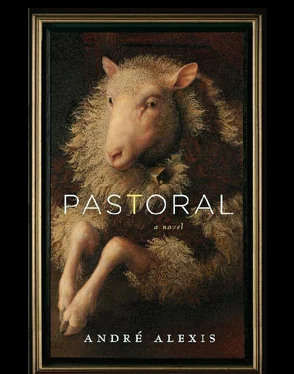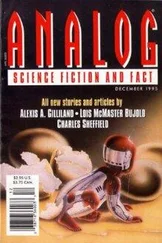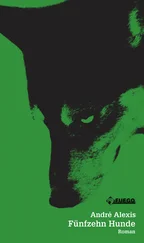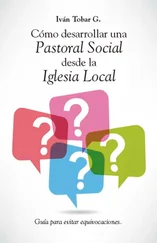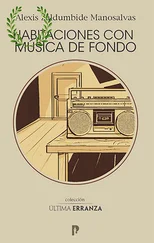Then there was the question. Did she still want Robbie? Not did she still love him. She did, she supposed, if only out of long-standing habit. But that did not mean she would do anything for him. So, did she want to marry the man? The answer was yes and no. It had been yes and no for some time. She had not, for instance, cancelled the wedding. She’d meant to, but hadn’t got round to it while her friends and family made ready for the happy day. Had she been hoping for Robbie to come back to her? Not that she was aware. Had she been hoping for another husband? No, not at all. Why then had she not been able to speak the handful of simple words: ‘I can’t marry him, after what he’s put me through’?
Now, unexpectedly, it was a question of keeping the day of her wedding. She could, if she wanted, marry the man she’d been hoping to marry. Perhaps it really was significant that she hadn’t called the wedding off. Perhaps it meant that, deep within, there had been (there was still) an undiminished hope that Robbie would return to her. Maybe the love she’d felt for him would survive its transplant to this new world in which she was not sure what she wanted.
It had been a rainy day, the rain falling slantwise against the stained glass of the church so that Alexis the beggar seemed to be begging underwater.
After a confession during which she’d told the priest everything (all her feelings, all that had happened between her and Robbie), Elizabeth and Father Pennant sat together at the front of the church.
— I think you’re right, he said. Love isn’t the only thing to consider. Love between a man and a woman is perishable because men and women are fallible. There is no perfect love, here below. You love him and he’s shown that he loves you … in his way. You need to decide if that’s enough, but, in my opinion, you’re fortunate. You know the worst of him. You know his selfishness and his thoughtlessness. You’ve had your eyes opened. If you can still love him, under the circumstances, that’s a blessing. And then, too, maybe you’ve gone through the worst.
— You think so?
— I don’t know for sure, he answered, because I don’t know Robbie well. But I know you well enough to guess that you know the answer. I think you have a good idea if worse is to come. It’s a matter of listening to yourself.
Thunder sounded and the rain renewed its onslaught on the saints. Hard to know one’s own mind in the din.
— You’ve been helpful, Elizabeth said.
From that moment she tried to listen to her own feelings. Had she gone through the worst? Was Robbie capable of putting her through unendurable humiliation? Or was he, as he insisted, a man who had been ‘prey to a love he couldn’t fight off’? (Hearing those words made her wonder if he’d been reading, though, of course, he hadn’t finished a book since they were in high school. The words had almost certainly been Jane’s.) Were there other loves out there to prey on him? Could she endure those if she had to? ‘Listening to herself’ brought neither comfort nor certainty. What it brought were questions about herself, about her capacity to forgive, about her ability to imagine the worst and yet to go on in a way that would allow her the self-respect she needed to survive.
Her wedding was a month away. Elizabeth allowed herself this thought: if, on the morning of her wedding, she decided she could not live with Robbie Myers, she would say no at the altar. It would be a costly and cruel no, but she would say it, and the idea she could say no brought with it a yes. On the appointed day there would be a wedding. She could not say if there would be a marriage.
Father Pennant was not at peace with himself either.
To begin with, there was the situation with Lowther. He was no longer annoyed with Lowther. He was worried about him. Lowther had begun to accept that he was in perfect health and that the chances of his dying were slim, but acceptance had brought distance. Lowther executed his tasks and practised his cello, but he no longer followed Father Pennant around, preferring his own company and the comfort of lugubrious music — all of it for the cello, all of it sounding dirge-like.
Then there were his own feelings of anomie. It was taxing to sense one was not part of the community in which one found oneself. He went about his work, comforting the bereaved, marrying happy couples, visiting the sick and infirm. But he was himself in need of a comfort that did not come. What relief he took, he took from the fields around town, drawing pictures of the flora and fauna in his notebooks.
Sometime after speaking to Liz Denny about her marriage, he went for a walk that took him miles out of town to an abandoned farm. The farm had once belonged to George Preston, a farmer who had been well-loved by all in Barrow. Preston had died a year before Father Pennant’s arrival and in that time the farm had been untended, waiting for a buyer, its apple trees and rows of strawberries growing wild. Behind the orchard and the field of strawberries, there was a wooded area through which a shallow creek ran. Father Pennant made for the creek, looking for toads, fish, moss, reeds and cattails.
It had rained only hours before he set off, so the land smelled of greenery and muck. The congeries of smells was intoxicating. How many things he could distinguish by their scent! There was everything from the wet earth itself to the trunks of fallen trees with their tenacious mushrooms, from the sweet smell of rotting apples to the slightly sour odour of the creek bed. And all of it brought solace.
He had followed the creek for a while when he heard bells and bleating and saw, on the opposite side of the creek, four sheep: a group of three following behind one that did not have a bell and did not bleat. Beautiful creatures: dark-legged, dark-faced, their white fleeces recently shorn, their ears twitching as a cloud of midges pestered them. He was about to move on when, in an odd instant, he had the distinct impression that the lead sheep had spotted him and wished to approach. The sheep stepped into the creek and, almost daintily, forded the shallow stream. It was unnerving to watch.
Father Pennant stood still where he was. The sheep, once it had crossed, shook itself the way dogs do, and a frisson travelled back and forth along its whitish flank. The sheep then approached, until it was a yard or so before him.
— Walk with me, Christopher, said the sheep.
It then turned away and followed the bank of the creek, taking the path Father Pennant himself might have. This, thought Father Pennant, was an excellent illusion, better than the gypsy moths had been and better by far than the ridiculous walk on water the mayor had taken. Having been prepared for the unusual by the previous ‘miracles,’ he was amused, not at all awed or frightened by the sheep. He looked for a speaker or microphone where, no doubt, the bell collar should have been. Was the sheep even real, he wondered, and found himself admiring all the work that must have gone into the illusion.
— Who are you? asked Father Pennant.
— I am He who has no one name, said the sheep.
— Are you? asked Father Pennant. You must prefer one over the others.
The sheep stopped where it was and looked across the creek at the place it had been.
— No, it said. I like them all.
Very clever, thought Father Pennant, recognizing or seeming to recognize both the wit and the voice of Lowther Williams. How wonderful to have Lowther back to his old playful self.
— Don’t you believe in me? asked the sheep.
— I believe, said Father Pennant, in God the Father and Christ His Son and I believe in the Holy Ghost. What I don’t believe in is talking sheep.
Stopping again to stare across the suddenly noiseless creek, the sheep said
Читать дальше
